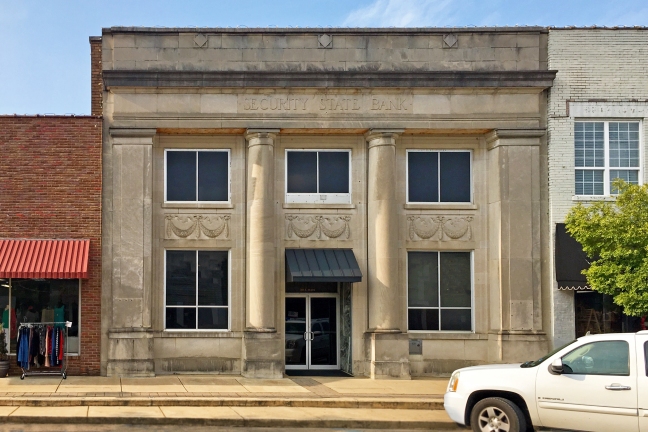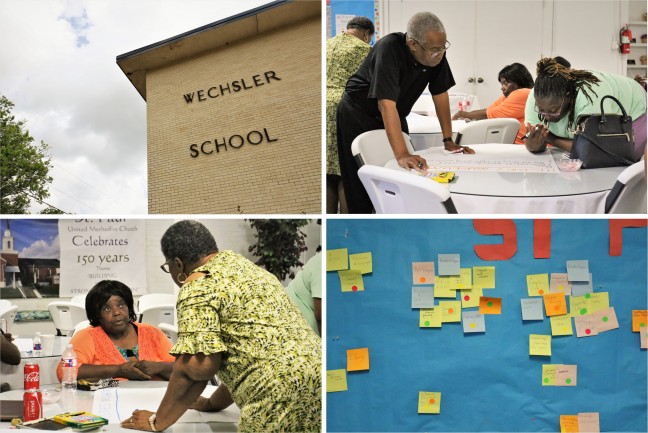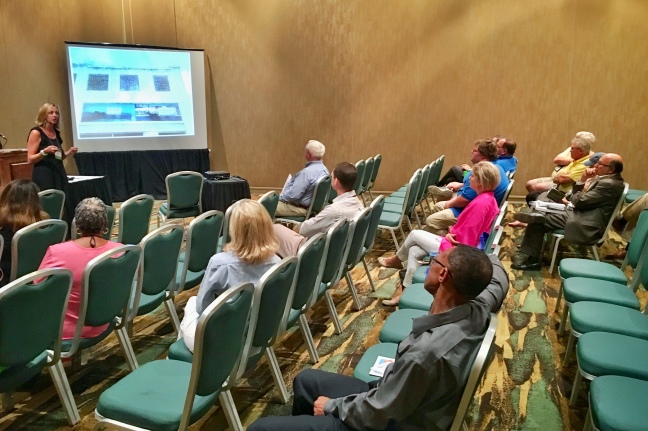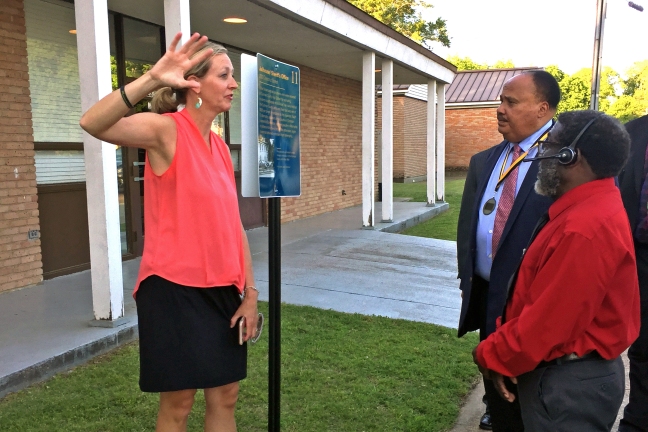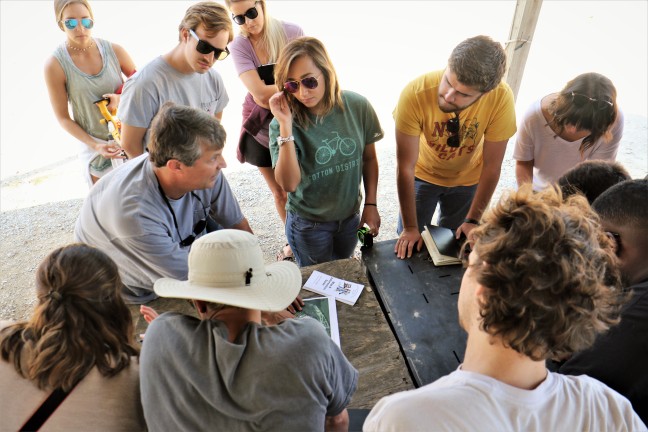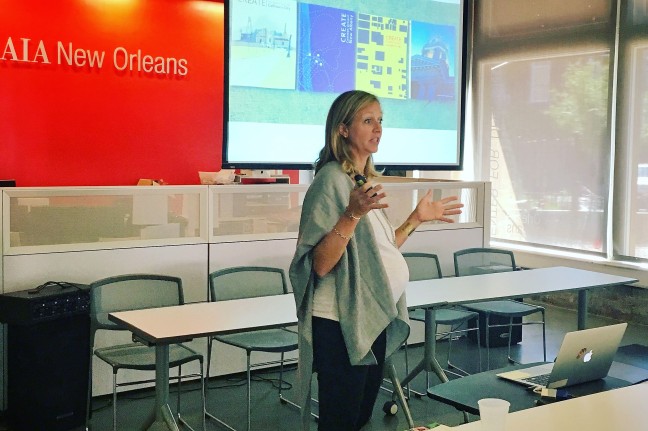STARKVILLE, Miss.— Mississippi State’s Carl Small Town Center is announcing its new leader and welcoming another to the team.
Leah F. Kemp was promoted to CSTC director in July, while Thomas R. Gregory III officially began his new role as the center’s community planner at the start of the fall semester.
Prior to assuming the center’s directorship, Kemp served for six years as assistant director and one year as interim director. At MSU, she also has served as an adjunct professor, visiting assistant professor and instructor in the College of Architecture, Art and Design.
A Mississippi Registered Architect, Kemp also has practiced in Washington, D.C., and Nashville, Tennessee. She holds a bachelor’s degree in interior design from Virginia Tech, as well as a master of architecture from Tulane University, where she received a commendation.
Additionally, Kemp is a member of multiple professional organizations, including the American Institute of Architects, and the national American Planning Association and its Mississippi chapter. She also is a Mississippi Heritage Trust and Mississippi Main Street board member.
In her new role, Kemp said she will continue serving as a leader, partner and educator in public interest design for MSU’s School of Architecture. Being a strong advocate for meaningful design in small towns is another of her top priorities, she said.
“My goal is to make the Carl Small Town Center the foremost thought leader in small town issues as they relate to the built environment,” she said. “Because we have the unique challenge of serving the majority of Mississippi’s small towns, I’d like to see our center help address more complex issues that are shared challenges among our Mississippi communities.”
Gregory is a 2005 MSU business administration, construction management and land development bachelor’s graduate who also minored in economics and political science. He returned to his alma mater after serving eight years as chief administrative officer for the City of Greenwood.
In that role, he was instrumental in writing grants, administering projects, and implementing the comprehensive plan for the city under the leadership of Mayor Carolyn McAdams.
“When I worked for the City of Greenwood, we partnered with the Carl Small Town Center to create a master plan for the Baptist Town neighborhood, and I witnessed firsthand the transformation the center’s work had on that community,” Gregory said. “As a former client of the Carl Small Town Center, I was impressed with the quality of work it produced and the success it had in improving the quality of life for Baptist Town residents.”
A Master of City and Regional Planning graduate of the University of North Carolina at Chapel Hill, Gregory is licensed by the American Institute of Certified Planners and is a member of the American Planning Association and Congress for the New Urbanism, among other professional groups.
Through his new role as the Carl Small Town Center’s community planner, Gregory said he is looking forward to “helping Mississippi’s small towns create a vision for their communities and providing tools to bring their vision to reality.”
“As a member of the CSTC team, I am excited to be a part of the transformational work we are doing around the state,” he said.
Fred E. Carl Jr., a major Mississippi State benefactor and the Carl Small Town Center’s namesake, is a Greenwood resident who founded and served as the first president and CEO of nationally recognized Viking Range Corp. A one-time architecture major at MSU, he endowed the university’s statewide community design outreach program in 2004.
For more on the College of Architecture, Art and Design, visit www.caad.msstate.edu; its Carl Small Town Center at http://carlsmalltowncenter.org or www.msstate.edu/videos/2016/07/carl-small-town-center.
MSU is Mississippi’s leading university, available online at www.msstate.edu.


